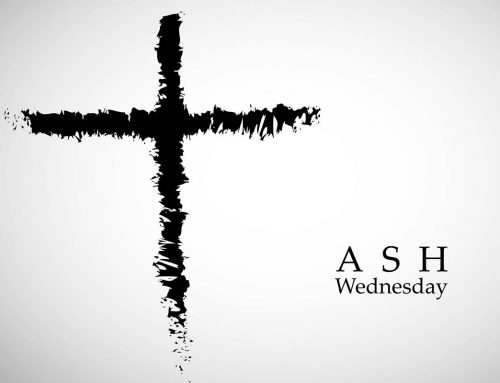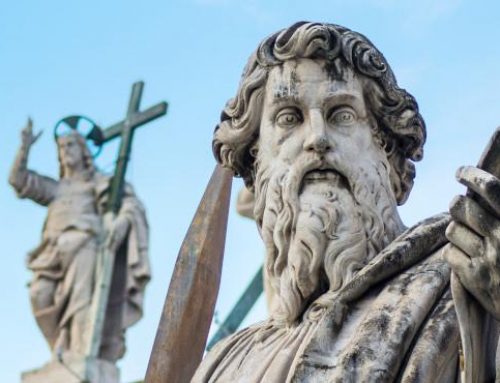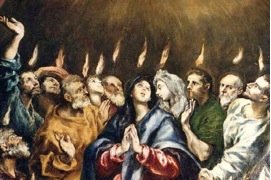Here is a translation of the address Pope Francis gave today before and after praying the midday Angelus with those gathered in St. Peter’s Square, on this solemnity of Christ the King and also the feast of St. Cecilia.
Here is a translation of the address Pope Francis gave today before and after praying the midday Angelus with those gathered in St. Peter’s Square, on this solemnity of Christ the King and also the feast of St. Cecilia.
Dear brothers and sisters, good morning!
On this last Sunday of the liturgical year, we celebrate the solemnity of Christ the King. And the Gospel of today brings us to contemplate Jesus as he was presented before Pilate as the king of a kingdom that “is not of this world.” This doesn’t mean that Christ is the king of another world, but that he is a different kind of king; but he is king in this world.
We have here a contraposition of two types of logic. The worldly logic bases itself on ambition, competition, combat with the weapons of fear, of bribery, of the manipulation of consciences. On the other hand, the logic of the Gospel, that is, the logic of Jesus, is expressed in humility and gratitude. It is affirmed silently but effectively with the force of truth. The kingdoms of this world sometimes are sustained by arrogance, rivalries, oppression; the reign of Christ is a “kingdom of justice, of love and of peace.”
Jesus has revealed himself as a king. When? In the event of the cross. One who looks at the cross cannot help but see the surprising gratuitousness of love. But someone could say, “But Father, that was a failure!” It is precisely in the failure of sin that sin is a failure. In the failure of human ambitions, there is the triumph of the cross, there is the gratuitousness of love. In the failure of the cross, love is seen. And a love that is gratuitous, that Jesus gives us.
To speak of power and strength, for the Christian, means to make reference to the power of the cross, and the strength of Jesus’ love: a love that remains firm and complete, even when faced with rejection, and which is shown as the fulfillment of a life poured out in the total surrender of itself for the benefit of humanity. On Calvary, the passers-by and the leaders made fun of Jesus nailed to the cross and they challenged him: “Save yourself by coming down from the cross. Save yourself.”
But paradoxically the truth of Jesus is precisely that [challenge] hurled at him with irony by his adversaries: “He can’t save himself!” If Jesus would have come down from the cross, he would have given in to the temptations of the prince of the world. Instead, he cannot save himself precisely so as to be able to save the others, because in fact he has given his life for us, for each one of us. To say “Jesus has given his life for the world” is true. But it is more beautiful to say, “Jesus has given his life for me.”
And today, in this Square, let each one of us say in his heart: “He has given his life for me, to be able to save each one of us from our sins.”
And who has understood this? One of the criminals who was crucified with him understood it well, the one called the “good thief,” who pleads with him, “remember me when you come into your kingdom.” But this was a criminal, a corrupt person, and he was there in fact, because he was condemned to death for all of the brutalities that he had committed in his life. But in Jesus’ way of behaving, in his meekness, he has seen love. The majesty of Jesus doesn’t oppress us, but rather frees us from our weaknesses and miseries, encouraging us to walk the path of the good, of reconciliation and of pardon. Let us look at the cross of Jesus, let us look at the “good thief,” and say together what the good thief said: Jesus, remember me when you come into your kingdom. Together: “Jesus, remember me when you come into your kingdom.” And to ask Jesus, when we feel that we are weak, that we are sinners, defeated, that he would look at us, and tell him: “You are there. Don’t forget me.”
Faced with so many lacerations in the world and too many wounds in the flesh of man, let us ask the Virgin Mary to sustain us in our commitment to imitate Jesus, our king, making his kingdom present with gestures of tenderness, of understanding, of mercy.
Zenit






Leave A Comment
You must be logged in to post a comment.